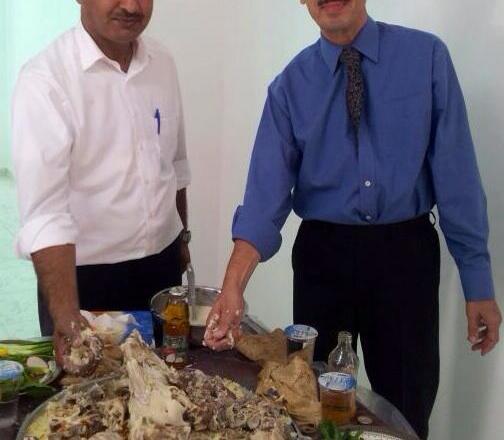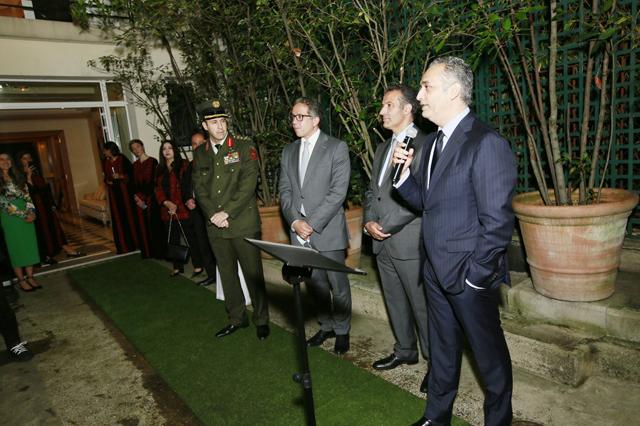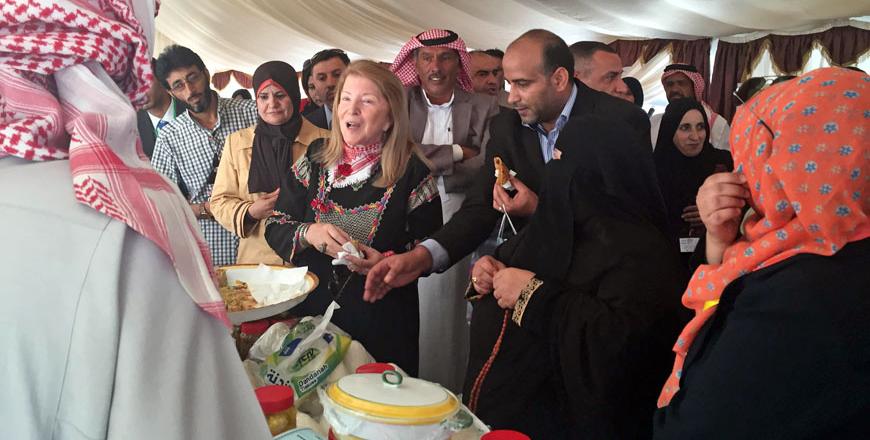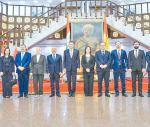You are here
The wrong mansaf
By Peter Millett - Feb 20,2014 - Last updated at Feb 20,2014

Jordanians are proud of their national dish. And rightly so: this tasty dish of rice, lamb and jameed (a kind of yoghurt) is a symbol of Jordanian tradition and an essential part of major occasions.
Mansaf is also a regular part of the visits that diplomats make to parts of the country. And of course, we have to eat it by hand, not with a spoon and fork.
So I was looking forward to a mansaf when I visited Maan a few weeks ago, invited by one of the local MPs.
Maan is interesting as a prominent town in the south of Jordan. It has significant historical importance as the town where the Hashemite Emir Abdullah based himself when he arrived in 1920.
Maan is frequently mentioned as a place with particular issues and problems, for example where four students were killed in violence at the university last year.
I hadn’t been to Maan for a while, so the invitation seemed like a good opportunity to go and listen to the local people.
We arrived at the outskirts of Maan in mid-afternoon. A local police car was waiting for us and we were asked to follow it. We drove through the streets until we came to a building that looked like a place for hosting big receptions. There were many cars parked outside and lots of police in the vicinity. With a sense of expectation, we went into the building.
As usual, we were greeted by a row of earnest-looking men who shook our hands and offered us greetings.
I did not recognise any of them. And they seemed a bit puzzled by us. We entered the room where there were over 200 men in traditional tribal dress standing around tables groaning (the tables, not the men) under the weight of numerous mansaf dishes. They welcomed us and ushered us to a vacant table.
But something did not seem right.
Usually when I accept an invitation to visit a place, we sit and talk before eating. These people had already started.
The MP was nowhere to be seen. And they did not seem to know who we were or why we were there.
It dawned on us that we had come to the wrong place. This was the wrong mansaf!
This mansaf was being hosted by local farmers for a visiting minister from Amman. Our MP host was waiting for us elsewhere.
Once we realised the mistake, we saw a new dilemma: how could we extract ourselves with dignity?
Fortunately, someone understood that we had come to the wrong place. Phone calls were made and we were led out of the room. There were a few surprised looks. But I suspect that most of the men were enjoying their mansaf and did not notice.
We went back to our cars and were led to the right house. There we had a long and fruitful discussion with the MP and his friends and companions. They talked about the situation in Maan and their perception of local and regional issues.
After the discussion we went to eat. As it happened, they offered mandi, a Yemeni dish which resembles mansaf but which has spicy rice. It is commonly served in the south. And it seems that you eat it with a fork and spoon rather than by hand.
Reflecting on the visit later, I realised that going to the wrong mansaf illustrated one of the great strengths of Jordanian society.
The tradition of welcoming guests, even unknown guests, remains strong.
The fact that we were able to gatecrash someone else’s mansaf, be warmly welcomed and offered a meal is testament to the fact that the tradition of hospitality and generosity remains deeply embedded in Jordanian culture. Long may that remain the case!
The writer is British ambassador to Jordan. He contributed this article to The Jordan Times.
Related Articles
AMMAN — Jordan’s national dish mansaf was inscribed on the Representative List of the Intangible Cultural Heritage of Humanity during a UNES
AMMAN — In the presence of the Jordanian and Egyptian Tourism ministers, the Jordanian embassy in Paris on Friday organised a reception to c
AMMAN — Marking the Kingdom’s 69th Independence Day, a festival held this weekend celebrated a must-have ingredient of Jordanian cuisine — j



















